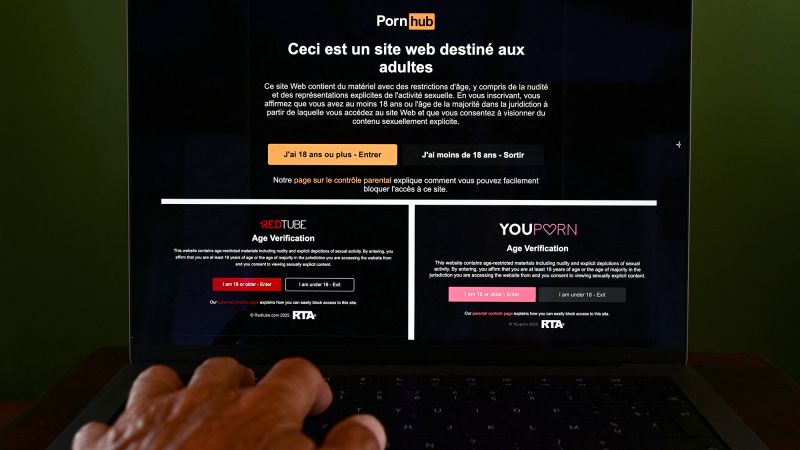The recent actions taken by Pornhub’s parent company, Aylo, highlight a significant response to regulatory changes in France concerning age verification on adult entertainment websites. Following the implementation of a stringent French law aimed at safeguarding minors from inappropriate online content, the company has decided to suspend access to its sites within the country. This dramatic move was announced by the country’s communications regulator, Arcom, prompting a wave of discussion regarding the responsibilities of adult content providers in protecting young users.
In its official statement, Arcom criticized Aylo’s decision, asserting that the company chose to “shirk the requirement of protecting minors” imbued in France’s digital regulations. The regulator emphasized that several technical solutions exist which facilitate age verification while simultaneously protecting users’ personal data. Given these approaches, Arcom’s assertion raises questions about Aylo’s motivations, suggesting a potential conflict between corporate interests and compliance with legal mandates aimed at public welfare.
Aylo, which operates multiple adult websites including Pornhub, YouPorn, and Redtube, is owned by the Canadian private equity firm Ethical Capital Partners. The significant impact of this decision on both users and the adult entertainment industry is highlighted by the fact that, in 2024, France was reported to have the second-largest audience for Pornhub, just behind the United States. Therefore, the suspension of these services not only creates a gap in the market but also highlights the challenges that adult sites face in balancing business operations with legal obligations.
The recently adopted law in France stipulates that pornography platforms must employ more rigorous age-verification methods. The legislation could require users to input sensitive details such as bank card information, a move aimed at ensuring that minors are not able to access adult content. Aylo has previously suggested that age verification should be facilitated by the technology companies whose devices are used to access such content, thereby placing the onus not on themselves but on tech giants like Apple or Google. This perspective raises broader discussions about where responsibility lies in the digital age, particularly in the complex interplay between content creators and technology providers.
Despite not directly responding to requests for comments regarding the suspension, heads of state and advocacy groups have publicly acknowledged the potential societal impacts of Aylo’s decisions. Aurore Bergé, France’s Minister for Gender Equality, expressed that the withdrawal of access would mean “less violent, degrading and humiliating content accessible to minors in France.” Her statement reflects a growing consensus that active measures must be taken to shield young individuals from harmful online content.
The moves being made in France are reflective of a global trend where governments are increasingly scrutinizing how online platforms manage potentially harmful content, especially concerning minors. In the United States, for example, there has been a wave of legislation with 19 states enacting laws demanding similar age-verification measures. These laws have prompted some major adult websites to block users from those states rather than incur the costs associated with compliance—an indication of the lengths companies will go to protect their bottom line.
Moreover, the European Commission has taken a keen interest in the issue, initiating an investigation into Pornhub and several other significant adult websites for non-compliance with regulations devised to protect young users. This scrutiny is part of larger efforts within the legislative framework of the European Union, which is actively developing tools such as an age-verification app, allowing users above 18 to verify their age without compromising other personal data.
The landscape of adult entertainment and its legal and ethical implications is rapidly evolving, and the actions of platforms like Pornhub reflect the challenges that come with regulatory compliance in pursuit of societal protection. As countries around the world grapple with how best to safeguard minors in an increasingly digital world, the dialogue surrounding adult content regulation will undoubtedly endure, prompting further scrutiny and perhaps necessitating innovative solutions to protect vulnerable users without infringing on rights and providing access to content for responsible adult users.



